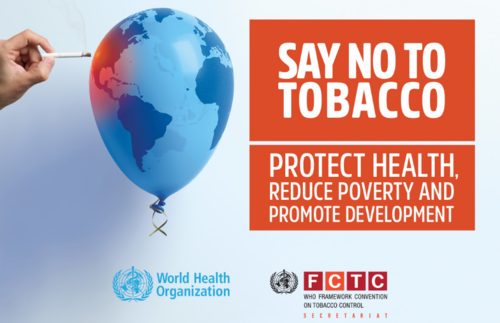The World Health Organization’s (WHO) 2017 report on the global tobacco epidemic (published 19 July, 2017) has found that tobacco control policies are saving lives, but warns that tobacco industry interference in health policies presents a “deadly barrier” in developing nations.
Tobacco use kills more than 7 million people each year, and smoking tobacco is one of the most important risk factors for many lung diseases, as well as heart diseases and cancers.
The report claims that 4.7 billion people, or 63% of the world’s population, are now covered by at least one “best practice” comprehensive tobacco control measure from the WHO Framework Convention on Tobacco Control (WHO FCTC); this figure has quadrupled since 2007, when only 1 billion people and 15% of the world’s population were covered.
Despite these positive figures, the new report says that governments still need to do more to prioritise the monitoring of tobacco use and the implementation of prevention policies. Dr Tedros Adhanom Ghebreyesus, WHO Director-General, said: “Governments around the world must waste no time in incorporating all the provisions of the WHO Framework Convention on Tobacco Control into their national tobacco control programmes and policies.
“They must also clamp down on the illicit tobacco trade, which is exacerbating the global tobacco epidemic and its related health and socioeconomic consequences.”
The report also warns of the “interference” of the tobacco industry in health policy, based on reports of the aggressive pursuit of new markets in Africa. Douglas Bettcher, director of the WHO’s department for the prevention of noncommunicable diseases, said: “Tobacco industry interference in government policymaking represents a deadly barrier to advancing health and development in many countries, but by monitoring and blocking such activities, we can save lives and sow the seeds for a sustainable future for all.”





